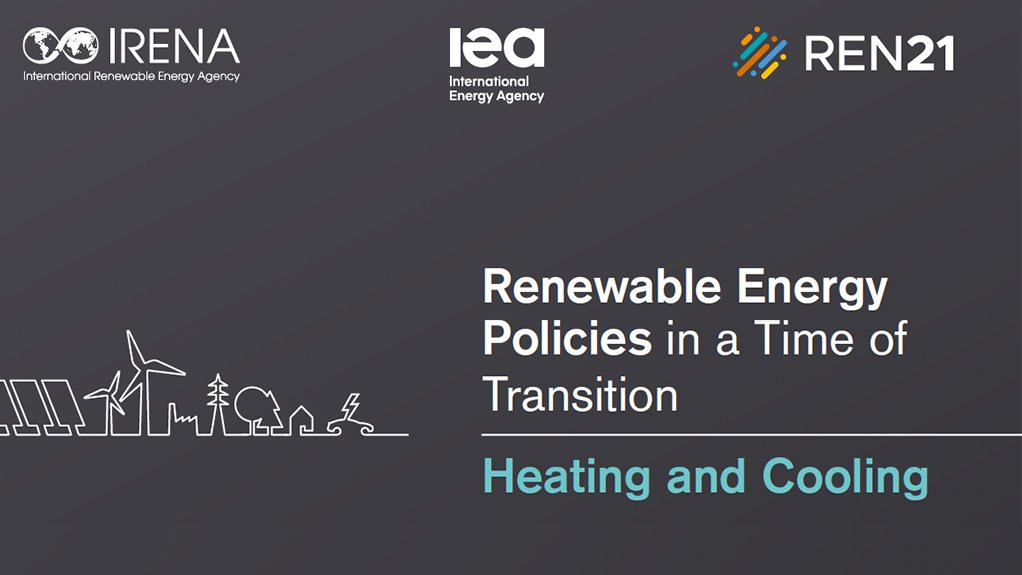- Renewable Energy Policies in a Time of Transition: Heating and Cooling10.37 MB
Heating and cooling accounts for almost half of global energy consumption. With most of this relying fossil fuels, however, it contributes heavily to greenhouse gas emissions and air pollution. In parts of the world lacking modern energy access, meanwhile, inefficient biomass use for cooking also harms people’s health, damages the environment and reduces social well-being.
The transition to renewable-based, energy-efficient heating and cooling could follow several possible pathways, depending on energy demand, resource availability and the needs and priorities of each country or region. Broad options include electrification with renewable power, renewable-based gases (including “green” hydrogen), sustainable bioenergy use, and the direct use of solar and geothermal heat.
This report, developed jointly by the International Renewable Energy Agency (IRENA), the International Energy Agency (IEA) and the Renewable Energy Policy Network for the 21st Century (REN21), outlines the infrastructure and policies needed with each transition pathway. This edition, focused on renewable-based heating and cooling, follows a broader initial study, Renewable Energy Policies in a Time of Transition (IRENA, IEA and REN21, 2018).
The shift to renewables for heating and cooling requires enabling infrastructure (e.g., gas grids, district heating and cooling networks), as well as various combinations of deployment, integrating and enabling policies. The policy framework can demonstrate a country’s commitment to the energy transition, level the playing field with fossil fuels, and create the necessary enabling conditions to attract investments.
Along with highlighting country experiences and best practices, the study identifies barriers and highlights policy options for renewable heating and cooling.
Key recommendations include:
- Setting specific targets and developing an integrated long-term plan for the decarbonisation of heating and cooling in all end-uses, including buildings, industry, and cooking and productive uses in areas with limited energy access.
- Creating a level playing field by phasing out fossil-fuel subsidies and introducing other fiscal policies to internalise environmental and socio-economic costs.
- Combining the electrification of heating and cooling with increasingly cost-competitive renewable power generation, scaling up solar and wind use, and boosting system flexibility via energy storage, heat pumps and efficient electric appliances.
- Harnessing existing gas networks to accommodate renewable gases, such as biogas and green hydrogen.
- Introducing standards, certification and testing policies to promote the sustainable use of biomass, combining efficient systems and bioenergy solutions such as pellets, briquettes, bioethanol or anaerobic digestion.
- Reducing investment risks for geothermal exploration and scaling up direct use of geothermal heat.
- Improving district heating and cooling networks through energy efficiency measures and the integration of low-temperature solar thermal, geothermal and other renewable-based heat sources.
- Supporting clean cooking and introducing renewable-based food drying in areas lacking energy access, with a combination of financing mechanisms, capacity building and quality standards aimed at improving livelihoods and maximising socio-economic benefits.
Report by Irena
EMAIL THIS ARTICLE SAVE THIS ARTICLE ARTICLE ENQUIRY
To subscribe email subscriptions@creamermedia.co.za or click here
To advertise email advertising@creamermedia.co.za or click here











